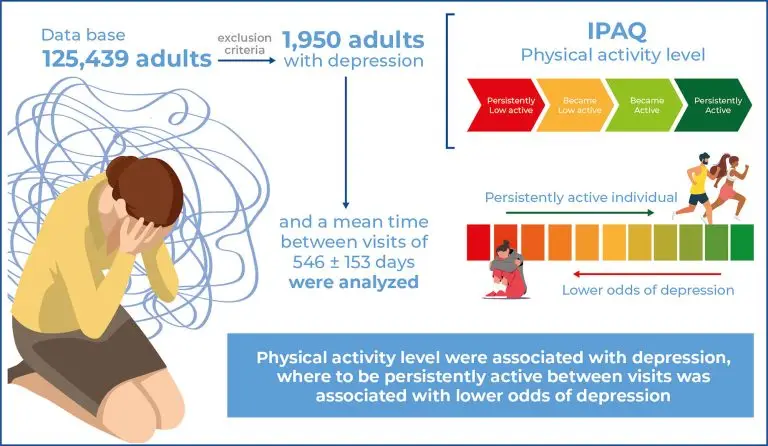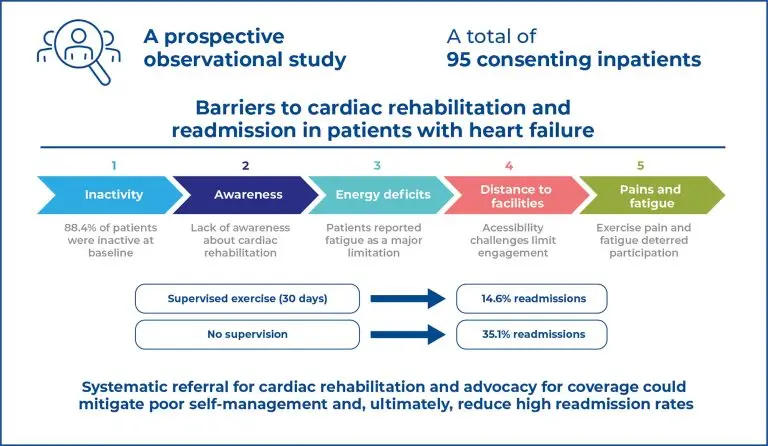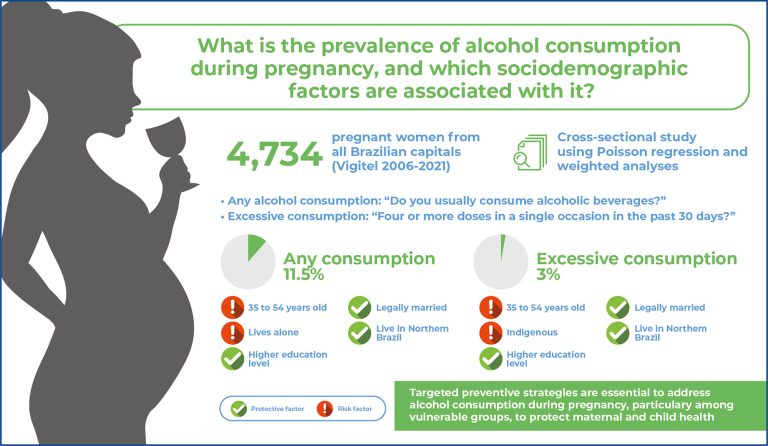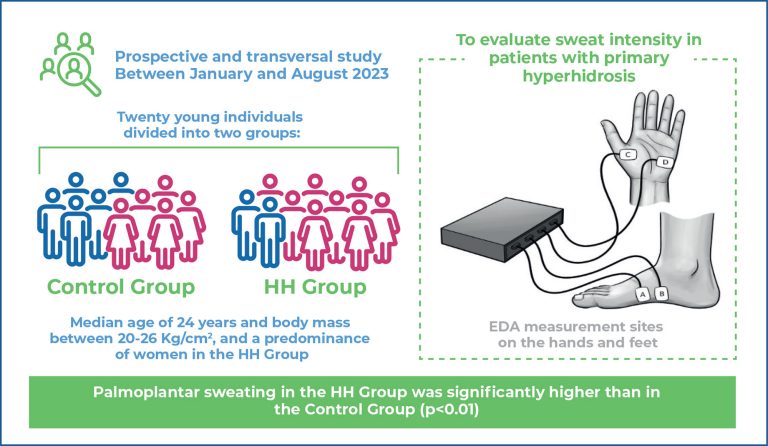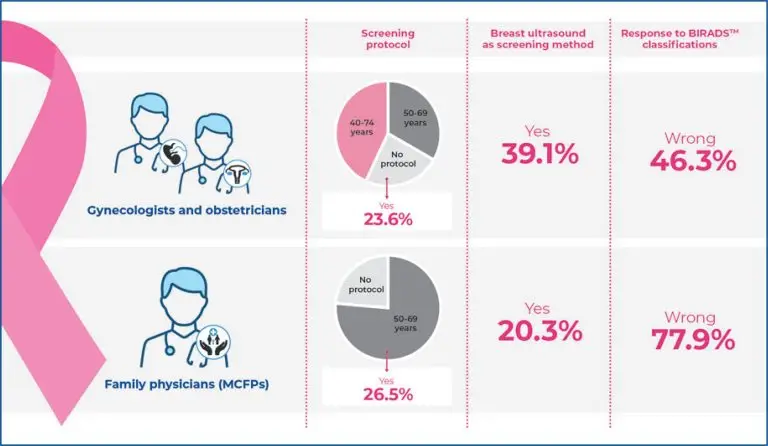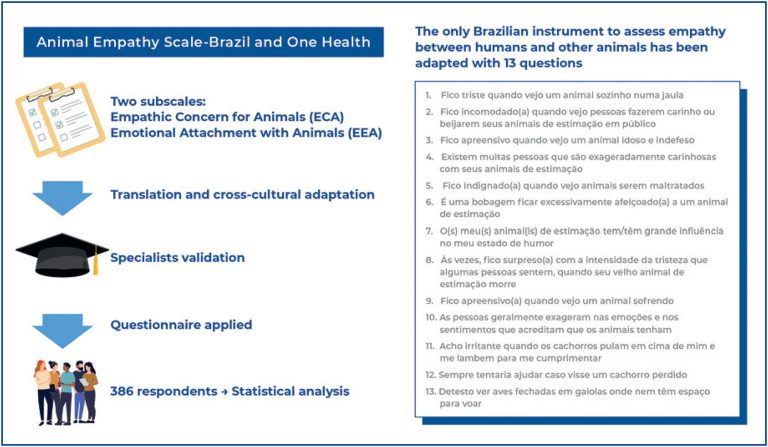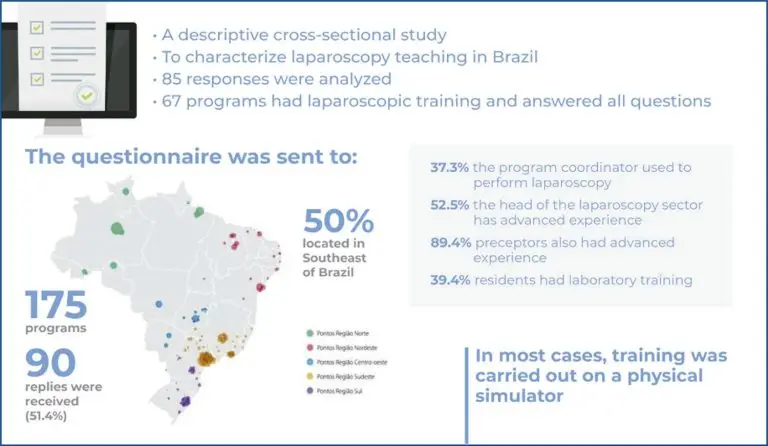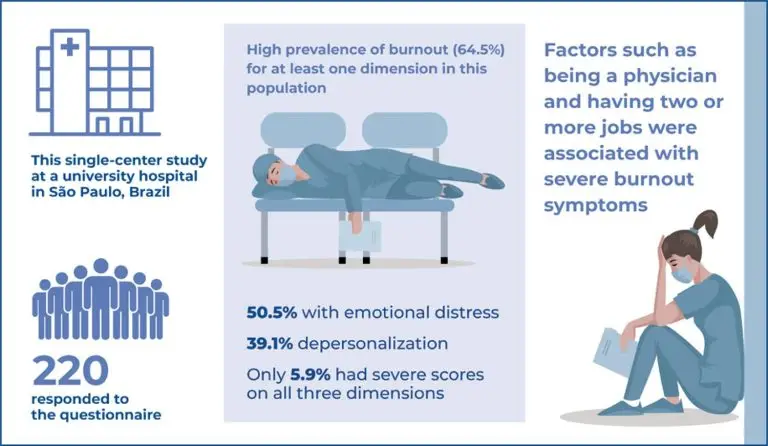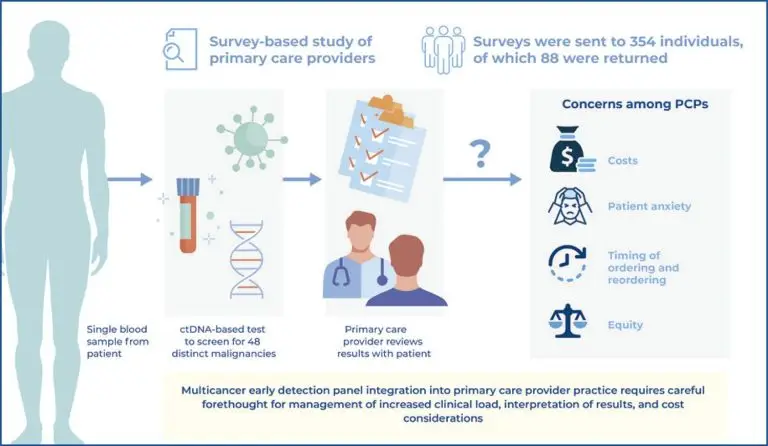14/Mar/2025
Are changes in physical activity associated with depression? A follow-up study of 1,950 individuals
DOI: 10.31744/einstein_journal/2025AO1128
Highlights ■ Persistently active individuals have strong independent protective factors against depression. ■ BMI (kg/m2) is an independent risk factor for depression. ■ Individuals with depression at follow-up were older than those without depression. ■ Perceived stress is a strong independent risk factor for depression. ABSTRACT Objective: To evaluate the association between changes in physical activity and depression in 1,950 Brazilians. Methods: This follow-up study included 1,950 Brazilians, aged ≥18 years, of both sexes, who participated in a health screening […]
Keywords: Depression; Exercise; Exercise therapy; Lifestyle; Sedentary behavior; Surveys and questionnaires
10/Mar/2025
Barriers to cardiac rehabilitation and their association with hospital readmission in patients with heart failure
einstein (São Paulo). 10/Mar/2025;23:eAO0713.
View Article10/Mar/2025
Barriers to cardiac rehabilitation and their association with hospital readmission in patients with heart failure
DOI: 10.31744/einstein_journal/2025AO0713
Highlights ■ Barriers to rehabilitation: high inactivity rates (88.4%) and significant barriers, such as fatigue and lack of awareness, hinder recovery. ■ Professional supervision: only 1% of patients were enrolled in formal cardiac rehabilitation; however, those who received professional supervision experienced lower readmission rates (14.6% versus 35.1%). ■ Systematic gaps: addressing systemic gaps, such as coverage and referral to rehabilitation programs, is critical for improving patient outcomes and reducing rehospitalization rates. ABSTRACT Objective: This study assessed the barriers to cardiac […]
Keywords: Cardiac rehabilitation; Cardiac Rehabilitation Barriers Scale; Coronary disease; Exercise; Exercise therapy; Heart failure; Hospitalization; Patient discharge; Self management; Surveys and questionnaires
Ideal time and self-reported time to ejaculate, frequent use of virtual pornography, and disorders of ejaculation among internet users in the Metropolitan Region of São Paulo, Brazil. Cross-sectional study
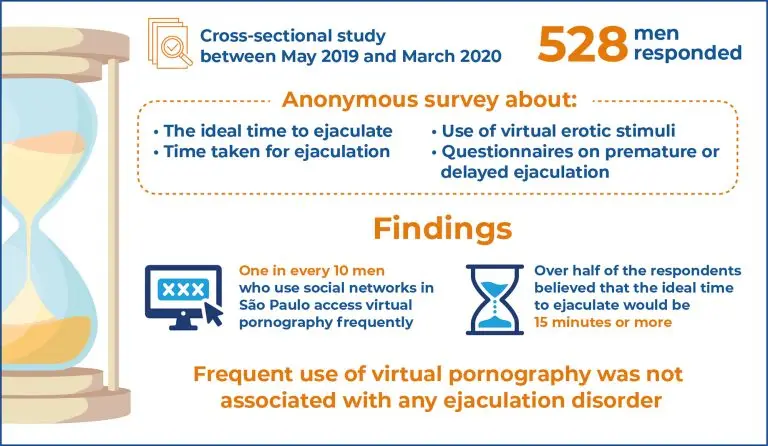
26/Feb/2025
Ideal time and self-reported time to ejaculate, frequent use of virtual pornography, and disorders of ejaculation among internet users in the Metropolitan Region of São Paulo, Brazil. Cross-sectional study
einstein (São Paulo). 26/Feb/2025;23:eAO1282.
View Article26/Feb/2025
Ideal time and self-reported time to ejaculate, frequent use of virtual pornography, and disorders of ejaculation among internet users in the Metropolitan Region of São Paulo, Brazil. Cross-sectional study
DOI: 10.31744/einstein_journal/2025AO1282
Highlights ■ About one in every 10 social network male users in São Paulo frequently use virtual pornography. ■ Over half of the respondents believed that the ideal time to ejaculate would be of 15 minutes or more. ■ Frequent use of virtual pornography was not associated with ejaculation disorders. ABSTRACT Objective: To investigate the association between frequent use of virtual pornography, perceptions of the ideal time to ejaculate, and changes in ejaculation. Methods: Adult men living in São Paulo […]
Keywords: Diagnostic Self Evaluation; Ejaculation; Erotica; Premature ejaculation; Sexual behavior; Sexual health; Surveys and questionnaires
26/Feb/2025
Alcohol consumption among pregnant women in Brazilian capitals: How many, where, and who are they?
DOI: 10.31744/einstein_journal/2025AO0754
Highlights ■ Any alcohol consumption during pregnancy: prevalence of 11.5%. ■ Excessive alcohol consumption during pregnancy: prevalence of 3.0%. ■ Risk factors: older age, low education, and Indigenous ethnicity. ■ Protective factors: being married and living in Northern Brazil. ABSTRACT Objective: To analyze the prevalence and factors associated with alcohol consumption among pregnant women. Methods: This cross-sectional study examined pregnant women living in Brazilian capitals using information collected by the Noncommunicable Chronic Disease Risk Factor Surveillance System (Vigitel) between 2006 […]
Keywords: Alcohol drinking; Binge drinking; Health Surveys; Pregnancy; Pregnant Women; Risk Factors; Surveys and questionnaires
21/Nov/2024
Continuous evaluation of exosomatic electrodermal activity in patients with primary palmoplantar hyperhidrosis
einstein (São Paulo). 21/Nov/2024;22:eAO1152.
View Article21/Nov/2024
Continuous evaluation of exosomatic electrodermal activity in patients with primary palmoplantar hyperhidrosis
DOI: 10.31744/einstein_journal/2024AO1152
Highlights ■ Continuous exosomatic electrodermal activity was associated with higher skin conductance levels in patients with hyperhidrosis. ■ Palmoplantar sweating was significantly higher in the hyperhidrosis group than in the control group (p<0.01). ■ Electrodermal activity is an effective and simple method for objectively quantifying sweating in patients with hyperhidrosis. ABSTRACT Objective: To objectively evaluate sweat intensity in patients with primary hyperhidrosis by measuring electrodermal activity using a continuous exosomatic technique without external stimuli. Methods: This prospective and transversal study […]
Keywords: Anxiety; Depression; Galvanic skin response; Hyperhidrosis; Palmoplantar sweating; Perception; Surveys and questionnaires; Sweat
07/Oct/2024
Knowledge related to breast cancer screening programs by physicians in Brazil
DOI: 10.31744/einstein_journal/2024AO0760
Highlights Variability in screening protocols: only 42.8% of gynecologists and obstetricians follow the 40-74 years protocol, while 76.6% of family physicians follow the 50-69 years protocol. High rate of incorrect BIRADS™ interpretation: there were 46.3% incorrect responses among gynecologists and obstetricians and 77.9% among family physicians, highlighting significant knowledge gaps. Misconception about breast ultrasound: 39.1% of gynecologists and obstetricians and 20.3% of family physicians incorrectly consider ultrasound as a screening method. Impact of inadequate training: inadequate training leads to improper […]
Keywords: attitudes; Brazil; Breast neoplasms; Family; Gynecologists; Health knowledge; Mammography; Mass screening; Obstetricians; Physicians; practice; Preventive medicine; Surveys and questionnaires
10/Sep/2024
Human-animal interaction and One Health: establishment and validation of the Brazilian version of the Animal Empathy Scale
einstein (São Paulo). 10/Sep/2024;22:eAO0685.
View Article10/Sep/2024
Human-animal interaction and One Health: establishment and validation of the Brazilian version of the Animal Empathy Scale
DOI: 10.31744/einstein_journal/2024AO0685
Highlights From the One Health approach, empathy represents the initial movement towards achieving planet harmony. The more emotions we attribute to animals, the more we develop pro-conservation behaviors. AES-Brazil may serve as a tool for reflection and monitoring interventions in human-animal relationships. ABSTRACT Objective: To design and validate a Brazilian version of the Animal Empathy Scale, based on the existing Portuguese version. Methods: Content validity assessment was performed by expert judges, and the adapted scale was administered to a sample […]
Keywords: Animals; Empathy; Factor analysis; Human-animal interaction; One health; statistical; Surveys and questionnaires
20/Aug/2024
Current status of laparoscopy teaching in gynecology and obstetrics medical residency in Brazil
DOI: 10.31744/einstein_journal/2024AO0458
Highlights Only 20% of the medical residency programs have laparoscopic teaching. Preceptors of the residency programs have advanced experience. Most programs have no plan to set up a training center. Resideny programs are concentrated in the Southeast region and in capitals. ABSTRACT Objective: To characterize laparoscopy teaching in Medical Residency Programs in Gynecology and Obstetrics in Brazil, and to evaluate preceptors’ characteristics in laparoscopy programs and map laparoscopic training practice scenarios. Methods: This descriptive cross-sectional study evaluated questionnaire responses from […]
Keywords: Brazil; Education, medical; Health Knowledge, Attitudes, Practice; Internship and residency; Laparoscopy; Minimally invasive surgical procedures; Surveys and questionnaires
20/Aug/2024
Prevalence and risk factors of Burnout syndrome among intensive care unit members during the second wave of COVID-19: a single-center study
einstein (São Paulo). 20/Aug/2024;22:eAO0271.
View Article20/Aug/2024
Prevalence and risk factors of Burnout syndrome among intensive care unit members during the second wave of COVID-19: a single-center study
DOI: 10.31744/einstein_journal/2024AO0271
Highlights A single-center study evaluated the prevalence and risk factors for Burnout syndrome in intensive care unit teams. The study revealed a high prevalence of Burnout syndrome in at least one dimension. Factors such as profession and having two or more jobs were associated with severe burnout symptoms. The study highlighted the need for interventions and support to address burnout among intensive care unit teams. ABSTRACT Objective: To evaluate the prevalence of burnout among the intensive care unit team of […]
Keywords: Anxiety; Burnout, psychological; COVID-19; Intensive care units; Pandemics; Stress, psychological; Surveys and questionnaires
06/Aug/2024
Perspectives of primary care providers regarding multicancer early detection panels
DOI: 10.31744/einstein_journal/2024AO0771
Highlights Multicancer early detection panels are novel assays that allow screening for dozens of cancers using a single blood sample. Data on the optimal workflow for ordering, interpreting, and managing subsequent evaluations of multi-cancer early detection results are lacking. Primary care providers expressed concerns about the cost and management of subsequent evaluations for a positive multicancer early detection test. ABSTRACT Objective Multicancer early detection panels have recently become available to patients with healthcare provider prescriptions and available funds. These tests […]
Keywords: Delivery of health care; Early detection of cancer; Health equity; High-value care; Primary Health Care; Quality of Health Care; Surveys and questionnaires


